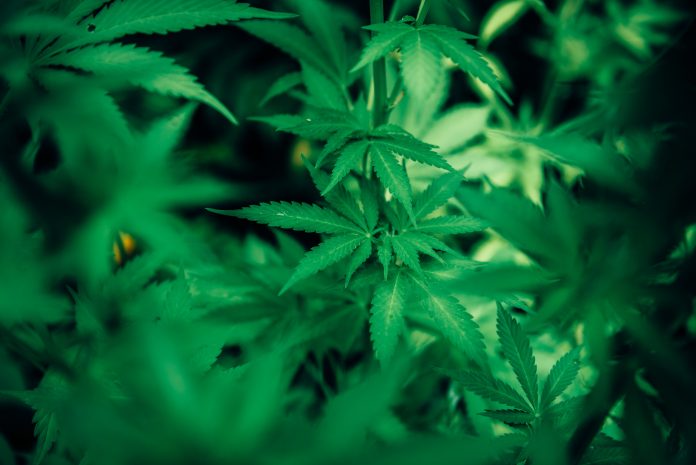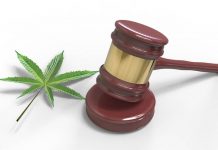This article is written by Magaonkar Revati, from Dayanand College of Law. This article is elaborately dealing with the administration of Joe Biden over cannabis.
Table of Contents
Introduction
Cannabis is one of the most popular substances of abuse that is used in the United States (US) after alcohol and tobacco.
Biden was far away from this pro-cannabis democrat which was running for the presidential election cycle. Within his long period in the Senate, he was one of those who championed various toughest legislation on crime. Such as, in 1986 Biden introduced a Comprehensive Narcotics Act, which strived to establish a cabinet-level office for coordinating with federal governments drug enforcement policies. In 1993 Biden sponsored the Violent Crime Control and Enforcement Act in the US which was a prototype to the 1994 Crime Bill. With this record, one can quite conclude with a notion that the Biden presidency might take a dim perspective on the cannabis industry. He was one of the people from his party who was out of step from the majority of his party and the U.S. voters with a broad question about legalization. For these reasons, it can be said that cannabis reform may not be at the top of his agenda.
What is cannabis
Cannabis is referred to as a group of three plants with psychoactive components, is known as Cannabis sativa, Cannabis Indica, and Cannabis ruderalis. After collecting and drying these plant’s flowers, the most common drug that is known as weed or pot, or marijuana is made up. Weed has been legalized in so many countries so names for it are also evolving. These days many people are using the term cannabis rather than weed.
Some eminent persons have argued that “cannabis” is a more accurate name and some feel it’s more neutral as compared with other terms such as weed and pot which some of the persons associated with its illegal use. The term marijuana has been out of favor due to its racist history. Cannabis is a substance that is used for relaxing and calming purposes and impacts. In some of the states in the US, it is also used in a range of medical conditions for persistent pain, poor appetite, and glaucoma. Even if cannabis comes from plants and is considered natural it also has some strong positive and negative impacts.
Elements of cannabis
Cannabis is created from more than 120 components that are known as cannabinoids. The expert researchers still don’t know what cannabinoid does but they do know about two of them: cannabidiol (CBD) and tetrahydrocannabinol retreats (THC).
CBD
It is a psychoactive cannabinoid but it’s non-intoxicating and non-euphoric, which means it will not get you high. It is often used in lowering pain such as for migraine, seizures, etc.
THC
It is the main and the essential psychoactive combination in cannabis, it is the element that makes people high for which most people do use it.
Is it addictive or not
When it comes to whether cannabis is addictive or not, then the answer is it is an addictive substance. Many supporters of cannabis have said that it is not an addictive substance. It is like other recreational addictive substances that show up in the brain, this is according to 2018 review studies.
Recently cannabis use disorders (CUD) have somewhat increased and a decrease in the number of the perceived risk of cannabis use has become the reason behind the essential to assess the addictive potential of cannabis. It is the observation that those who use cannabis continuously may face uneasy withdrawal symptoms, such as lack of energy, mood swings, and mental impairment. A report from 2015 suggests that the people who use cannabis frequently may have “marijuana use disorders”.
History of marijuana in the U.S.
The relation between the U.S. and marijuana dates back to the colonial period. In the 17th-century production of marijuana plants (hemp) was encouraged by the government itself for producing rope, clothing, and voyages. The domestic outcome of the hemp grew until after the civil war when the import replaced hemp. During the 19th century, marijuana became so much popular in medicinal values and was being openly sold in medical stores.
In 1910, after the Mexican Revolution, the Mexican migrants came to the U.S. in huge numbers and they brought recreational use of marijuana with them. Drugs and fear became associated with immigrants and due to this prejudiced thinking was formed against newcomers that they are associated with marijuana. The anti-drug campaign members warned them against the encroaching of ” marijuana risk “. During the period of the great depression, unemployment, and increased public resentment, fear of immigrants rapidly increased public and government concern about the possible problem of marijuana. By 1931, 29 states declared marijuana as an illegal substance.
The emergence of laws regarding marijuana
1937
During this period, Congress passed the Marijuana Tax Act, which resulted in the criminalization of marijuana. The New York Medicine Academy produced a report by declaring that marijuana doesn’t provoke violence, insanity or lead, to addiction or to use any recreational drugs. The agriculture department of the US came towards hemp for producing marine cordage, parachutes, and other military gears. It started a “Hemp for Victory” policy and also registered 375,000 acres of hemp land in the US.
1950
In 1950, the enactment of federal laws set mandatory sentences for offenses related to drugs. Though, in 1960 the cultural climate shifted for leading to more ambiguous attitudes towards marijuana. But again the reports authorized by presidents Kennedy and Johnson declared that the use of marijuana doesn’t induce violence or lead to more recreational drugs.
1970
During this period Congress repealed many mandatory punishments for offenses related to drugs. In 1972 the bipartisan Shafer Commission which was appointed by President Nixon at the direction of Congress deemed the laws relating to marijuana and specified the personal use of marijuana should be decriminalized. Yet Nixon rejected this recommendation but after 1970, 11 states decriminalized marijuana and many other states lowered the punishment.
1976
A parent’s movement against marijuana began and was instrumental in influencing the public attitudes that lead to the 1980s war on drugs. Many other mandates were enacted by President Reagan. The policy of “three strikes you’re out” made life sentences necessary for repeat drug offenders. The drug war continued in 1989 under the guidance of President George Bush.
The use, sale, and possession of cannabis over 0.3% THC (Tetrahydrocannabinol: minimum 113 cannabinoids that are identified in cannabis) is prohibited in the U.S. even though state laws, it is illegal under federal law. Cannabis as a schedule 1 drug which is included under the federal statutes Controlled Substances Act 1970, the cannabis over 0.3% THC doesn’t have any accepted medical use and can cause physical or psychological dependence and also have a high potential for abuse.
The use of cannabis is illegal so it cannot be used for any reason. There is only one exception for this and that is the FDA-approved research program.
The connection between Joe Biden and cannabis
Joe Biden, President of the U.S. is the person who stands on his views of cannabis. The encompassing perspective of Joe Biden in his past dealt with his proposed plan about marijuana or cannabis and how it may reflect in the future after being the president of the U.S. During one of his campaign Biden stated that decriminalization of cannabis will be pursued by his administration and also seeking expungement (destroying criminal record) for people with prior cannabis conviction. In one of the other campaigns, he has also stated on a different point that he also supports the legalization of medical cannabis, the reasonable rescheduling of cannabis at federal law, and allowing the states to enact their laws on cannabis. Biden’s turn from being tough on criminal laws to supporting decriminalization shows that Biden’s evolution being a politician and more broadly the U.S. voter’s evolution on drug policy and the laws.
Cannabis enthusiasts
Joe Biden’s views have been developed broadly over the past few decades. In 1980 and 1990 there were not so many legislators in Capitol Hill, which carried a harsher view for drug offenses than Delaware Sen. In that period nearly two decades, the federal government waged a war against drugs, and the main figure behind the war was Joe Biden. Biden introduced several bills that aimed to get harsher on offenders who were produced and were distributed federally controlled material which included marijuana. Many of these bills included harsher sentences of imprisonment for unlawful drug offenders.
The online pro-cannabis journal Leafly has pointed out that Biden’s emblem piece of regulation, the Violent Crime Control, and Law Enforcement Act, 1994 has played a very significant role in boosting the imprisonment rate for offences related to drugs in the U.S. The unproportionate imprisonment rates have been seen in lower-income and minor communities which are resulting after the enactment of the 1994 Act.
In one of the news channels during the year 2010, Biden was found saying that, “There’s a difference between sending someone to jail for a few ounces (of marijuana) and legalizing it. The punishment should fit the crime. But I think legalization is a mistake. I still believe (marijuana) is a gateway drug.” In starting Biden was the key person behind passing such bills for harsh punishment for drug offenders or criminals but from time to time his views and opinions have been changed in some way and have evolved from some different angles.
Gateway drug
Cannabis/marijuana has been called a gateway drug by many eminent researchers and other persons (enthusiasts). Hence the question may arise in the mind of some of the people as to what is the gateway drug and why is it called such?
Gateway drug means using such substances (drug) will possibly be directed for using other such substances, for instance: cocaine, heroin.
This term was popularly used during 1980. Observation of people who used active substances often started consuming drugs after using cannabis. This observation gave birth to the idea that marijuana is a gateway drug. Some people also have made such suggestions that marijuana affects the neural pathways in the brain that causes people to formulate a taste for drugs.
To oppose the above-mentioned phrase that marijuana/cannabis is a gateway drug there is a true example, Japan is a country where cannabis is not as accessible as in the U.S, 83.2% of people who use recreational substances did not use cannabis primarily. This statement can be used as opposing and for declaring the term cannabis is a gateway drug. There is also small evidence to back up this statement, so many people use cannabis before using other such recreational substances alone is not proof that cannabis use has caused them to use other drugs.
Marijuana and United States 2020 election
Marijuana has been legalized in some of the medical capacities in ⅔ ratio in all U.S. In 11 out of those states, even retail sale of weed and consumption of marijuana has been allowed. Even after marijuana being illegal in Schedule 1 drug in federal states the U.S. is the unquestioned annual pot revenue leader worldwide. It’s one of those issues which the American public has increasingly put or left behind. For the last 25 years, the national support for the organization of marijuana has stood opposite at 25% and the national Gallup pollster found out that 66% of Americans have voted for the worldwide legalization of the drug. Marijuana is one of the biggest job creators and quickly growing industries in the U.S.
It is not only about growing marijuana plants as it also includes ancillary business involving supply chain, marketing, branding, and financing these can also boost industries’ growth.
2020 has been a serious transition year for the U.S. by making this year’s election probably one of the most climacterics in the entire history of the U.S. Society being deeply restless and the shattered economy which was yet to be recovered due to the Covid-19 pandemic and continuous crisis of public health which took the lives of more than 260,000 Americans. Hence, the 2020 election has attracted a record turnout of more than 156 million voters who wanted their voices to be heard.
Three following states have legalized adult use of marijuana on their November ballots, which are: Arizona, South Dakota, and Montana. The Mississippians will vote on the medicinal sales of cannabis. If all the five measures get passed then cannabis will be legalized in 38 states and also in Washington, D.C Puerto Rico and 14 of these adult-use will be legalized including D.C.
Conclusion
Therefore, Biden’s administration over cannabis has been changed at every step and has done a very significant effect on the election of 2020, the Biden has introduced to legalize marijuana by introducing the cannabis policy. After being the 46th president of the U.S., Biden stated in February 2021 that in his administration he will pursue cannabis decriminalization as well as expungement of people with prior cannabis crimes.
Some of the eminent persons have perceived it to be an absence of inside knowledge the lawmakers have about cannabis and the psychological and economic tax for wrongful detention for the minor offences exact on people of colour.
References
- https://www.fool.com/investing/2020/09/20/joe-biden-and-cannabis-everything-you-need-to-know/
- https://libguides.law.uga.edu/c.php?g=522835&p=3575350#:~:text=In%20the%20late%2019th%20Century,the%20recreational%20use%20of%20marijuana.
Students of Lawsikho courses regularly produce writing assignments and work on practical exercises as a part of their coursework and develop themselves in real-life practical skill.
LawSikho has created a telegram group for exchanging legal knowledge, referrals and various opportunities. You can click on this link and join:
 Serato DJ Crack 2025Serato DJ PRO Crack
Serato DJ Crack 2025Serato DJ PRO Crack










 Allow notifications
Allow notifications


